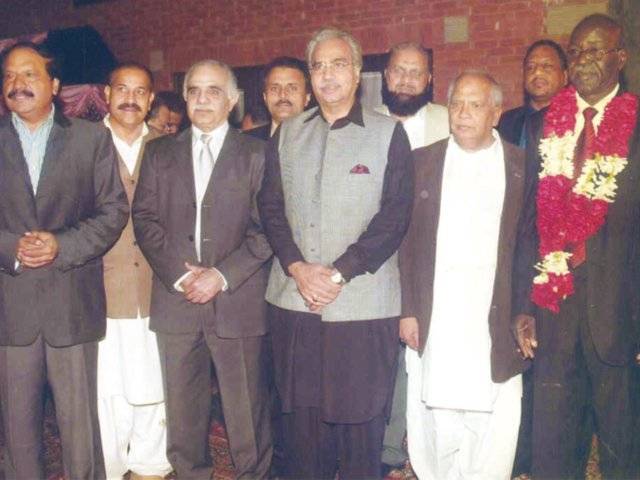LAHORE (APP) Ambassador of Sudan in Pakistan Al-Shafie Ahmed Mohamed urged Muslim countries to unite to face future economic challenges. Speaking at a reception hosted by Mian Muhammad Saeed Arain Derawalay, a leading exporter, in his honour here, he said that Europe was in deep economic recession but Muslim countries were unharmed because they were rich in natural resources and minerals. He said, If all 57 Muslim countries combine their resources and focus on the promotion of trade among themselves, then there is no need to seek foreign assistance. LCCI, President, Irfan Qaisar Sh, SVP LCCI Kashif Younis Meher, former LCCI President Mian Muzaffar Ali, Mian Khurram Saeed and other leading businessmen were also present. He said Sudan wanted to seek Pakistana cooperation in training and capacity building. As a result of prudent economic policies, a significant economic growth rate was recorded last year in Sudan. In response to broad-based policies, foreign investors are coming to Sudan for investment in various projects. We are looking forward to enhancing bilateral trade and strengthening relations on sound footings between the two countries. The ambassador said, We are seeking close cooperation with Muslim countries for economic development in Sudan through the private sector, however, Pak businessmen will be given priority. He said that Pak investors doing business in Sudan were happy with the conducive environment. Vice President SAARC Chamber of Commerce and Industry, Iftikhar Ali Malik said that the private sector of both countries must increase the volume of trade in sectors of their choice. He said Muslims constituted about 22 per cent of the worlds population but their share in the world GDP was hardly 4.5 per cent despite abundance of human and natural resources. Islamic countries growth is not encouraging, he regretted. Iftikhar Ali Malik said, We need to have a look at OIC trade profile, which accounts for only 7.8 per cent of the world export and 6.7 per cent of the world import. In 2006, OIC countries produced exports of $1.2 trillion and imports of one trillion dollars. He said that stagnant growth, deteriorating infrastructure, institutional weaknesses, high population growth and unemployment were factors behind low growth in Muslim countries. The level of economic and commercial cooperation among Muslim countries also shows a dismal situation, he added.
Friday, April 19, 2024
Muslim countries urged to unite to face economic challenges

No damage to Iranian nuclear sites after Israeli airstrikes, says UN nuclear watchdog
12:50 PM | April 19, 2024
Ch Shafay visits Directorate of Consumer Protection Council
April 19, 2024
ECP reviews arrangements for by-elections in Punjab
April 19, 2024
Punjab’s price control initiative: A welcome step
12:33 PM | April 19, 2024
A Tense Neighbourhood
April 19, 2024
Dubai Underwater
April 19, 2024
X Debate Continues
April 19, 2024
Hepatitis Challenge
April 18, 2024
IMF Predictions
April 18, 2024
Kite tragedy
April 19, 2024
Discipline dilemma
April 19, 2024
Urgent plea
April 19, 2024
Justice denied
April 18, 2024
AI dilemmas unveiled
April 18, 2024
ePaper - Nawaiwaqt
Advertisement
Nawaiwaqt Group | Copyright © 2024





